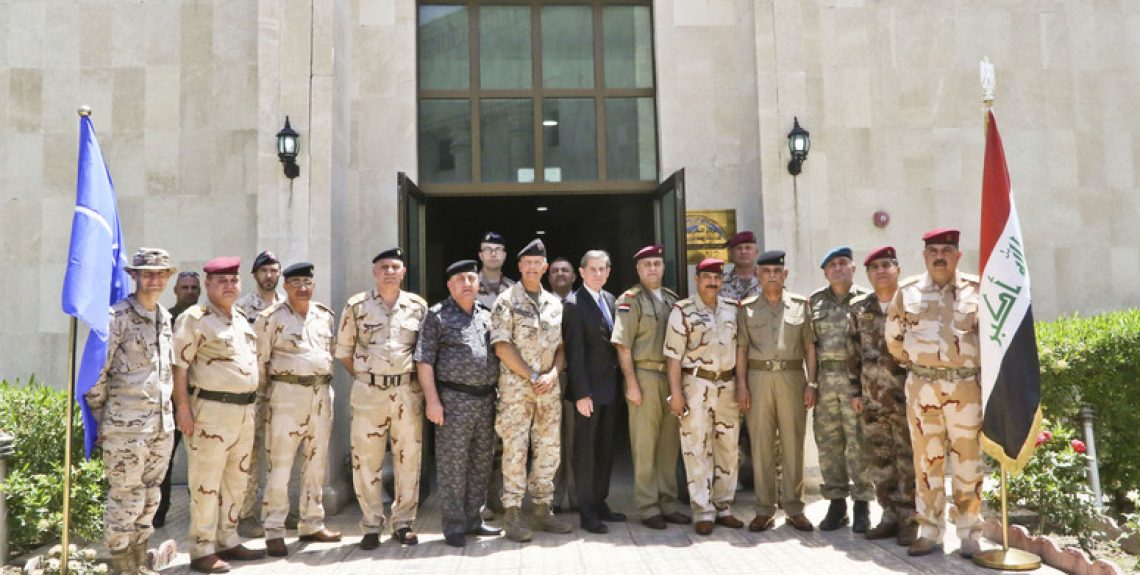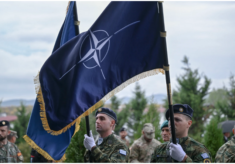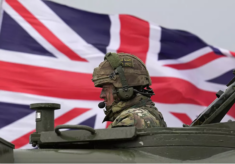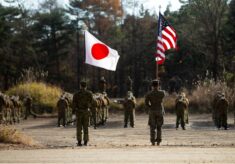On the 19th of June 2020 the National Iraqi News Agency (NINA) reported that the commander of the Iraqi Air Force discussed with the NATO Mission Iraq (NMI) commander and a number of the Alliance’s officers, the ongoing cooperation as well as the next stage of collaboration, especially with regard to the issue of resuming the NATO Training Mission Iraq. They also discussed the mechanisms for further developing the Iraqi air force.
NATO’s engagement in Iraq dates back to 2003, when the NATO Council approved a request from the representative of Poland, the then commander of the Multi-National Force operating in central and southern Iraq, to provide assistance to the Air Force in certain domains such as intelligence and logistics. The request asked NATO also to facilitate and coordinate the movements of the Multi-National Force, as well as its transportation. At the Istanbul summit in 2004 the Alliance decided to establish a mission to train the Iraqi security forces in response to the request of the then Iraqi interim government. During the period from 2004 to 2011, the Alliance trained 15.000 members of the Iraqi security forces. In 2011 Iraq was granted formal partner status as a Partner across the Globe. In 2012 an Individual Partnership Cooperation Program (IPCP) was signed. In February 2018 NATO defence ministers decided to establish a training mission in Iraq, at the request of the Iraqi government and the Global Coalition, to defeat ISIS. Then the Alliance’s officials said that they had plans to establish academies and technical military schools without involving in any combat operations.
In the recent past, the most important development US president’s call for NATO to play a greater role in Middle East after killing the Revolutionary Guard Corps’ Quds Force commander, Qassem Soleimani in January 2020. Donald Trump’s call was positively received by NATO, as the Alliance’s council announced in a statement that it was willing and ready to contribute to projecting regional stability and fight international terrorism.
Based on the events mentioned, a relevant question arises: is there a relationship between NATO strategy towards Iraq and its attitudes towards Middle East in general? In other words, does the Alliance have a certain strategy for the Middle East region in general? If yes, where is Iraq in that strategy and what should be its status?
Most political writings draw a connection between the Alliance’s concept and its role during the Cold War and its current transformations without examining and evaluating the shifts in NATO’s strategy.
In short, the most difficult challenges in NATO’s history appeared in the wake of the Cold War era, when the Alliance faced two options: either to transform itself or to be dissolved like the Warsaw Pact. NATO successfully adapted to the post-war period by establishing various partnerships across the world. However, the Alliance’s leaders soon acknowledged that these partnerships were not enough, so they formally announced a new strategy of “projecting stability” at the Warsaw summit in 2016, with the aim of emphasizing the need to secure the neighbouring regions through supporting the capabilities of their countries.
NATO has provided assistance to Iraq since 2004. However, the Alliance wanted to emphasize the need for having this assistance within a systematic strategy that should be followed during the coming years. In fact, Iraq is an explicit example of that strategy for many reasons; first, Iraq is part of a regional security complex that NATO perceives as crucial. This is why the Alliance launched the Istanbul initiative in 2004 which four Gulf states have joined. At the same time, though the issue of energy security was not explicitly mentioned among the six items of Istanbul initiative, this issue is one of NATO’s priorities and was included in its Strategic Concept, issued every ten years. The concept proposed the Alliance’s vision of threats facing the energy security sector and determined the suitable mechanisms to confront them. NATO’s concerns about energy security reached their highest level when the Secretary General of the Alliance, Jens Stoltenberg, said after the attack against the Saudi oil facilities, “Iran is destabilizing the entire region”. He added: “We invite all parties to stop these attacks because of their negative impacts on the whole region. We have concerns about more escalations”. In fact, if regional security is a matter of concern to NATO, then supporting the security and defence capabilities of the units that make up that security should become a necessity, a fact with which the Alliance’s strategy is consistent.
In my view there are three strategic indications for the NATO–Iraq relationship:
First, in light of the regional instability and the rising demands to reduce the number of foreign forces in Iraq, one of the proposed items in the first round of the US–Iraq Strategic Dialogue (June 2020), is that NATO should have a significant role to play in Iraq regardless of what that role could be, whether increasing the training missions of the Iraqi security forces or carrying out some or all of the international coalition’s combat tasks against ISIS in Iraq.
Second, within the NATO–Russia confrontation on more than one front, the Alliance has a certain interest to control the course of that conflict in the southern front (which includes the North African countries and the Arabian Gulf), especially with the continuity of the Russian pressures on both sides of the Alliance simultaneously, namely Ukraine on the eastern front and Syria/Libya in the southern one.
Third, the success of NATO in supporting the Iraqi defence capabilities could create a sort of regional balance and deter any unforeseen regional threats, especially with respect to energy security.
This does not mean that the Alliance seeks to deploy military forces outside its territory. In fact, regardless of the diversity of the Alliance’s working strategies and their development, they are governed by defined pillars, one of which is the fact that the Alliance prefers to work within international frameworks, not unilaterally, unless its interests are seriously threatened. Even in this situation there certain conditions for the Alliance’s military intervention outside its territories are required.
The Alliance’s decision to establish the NATO Regional Center and the Istanbul Initiative in Kuwait in 2017, as well as developing its relationship with Iraq, are important indicators not only in the context of the accelerating transformation of NATO’s work outside its treaty borders, but also in giving rise to features of a new role for the Alliance in the Middle East. These features may be defined in the eighth Strategic Concept of the Alliance which should issued next year. It will also determine whether NATO is going to undertake combat tasks or will continue to participate in training and consulting services.
*This article was published in Akhbar Al Khaleej (Bahrein), on the 29th of June 2020
Ashraf Mouhammed Kishk
Director of the Strategic Studies and international Program, Bahrain Center for Strategic, International and Energy Studies (Derasat).






























